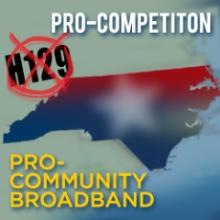An interesting article earlier this week on Boston.com says a number of
Massachusetts towns are studying muni electric plants after the privately owned electrical company took too long restoring power in the aftermath of Hurricane Irene.
“We are at the very beginning. We want to see if municipal control is even possible,’’ said Norwell Town Administrator James Boudreau.
“We want a faster response. This was a tropical storm. What if it was a category 2 hurricane? What if it was the winter?’’ he said, noting the efficient restoration of power in towns with electric utilities under municipal control, such as Hingham, Hull, and Braintree.
Braintree's municiple utility also runs a broadband network for the community. If these communities are looking at am uni utility, they should ceratinly consider improving their broadband access at the same time. As we have
covered previously, Wired West (on the other side of the state) is a collection of many communities that recently formed municipal "light plants" (in the parlance of Massachuesetts) as a legal structure for building a community fiber network.
As we have observed time and time again, local control tends to improve the quality and response time of customer service. And in those cases where it doesn't, at least they have no one to blame but themselves. It is well within their power to fix it.
Curiously, National Grid was formed by combining privatized former muni electric utilities -- a warning to communities that may look to privatize their community broadband networks over time due to the mistaken notion that community ownership was only necessary to establish the network rather than ensure it continues operating for the benefit of the community. Community broadband is about far more than technology, it is about ownership by an entity with the right incentives to operate essential infrastructure.
The company's response to this movement is fascinating:
National Grid offers a different opinion. Communities are “best served by a company with established practices, resources, and programs that can serve them in an evolving, challenging energy environment,’’ said Deborah Drew, a spokeswoman for the utility.
Say what?



